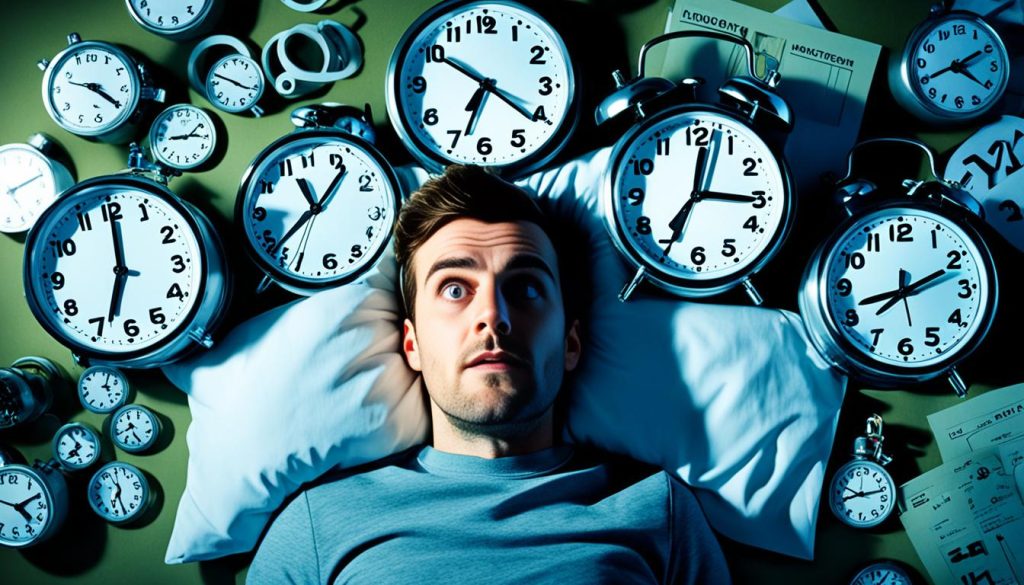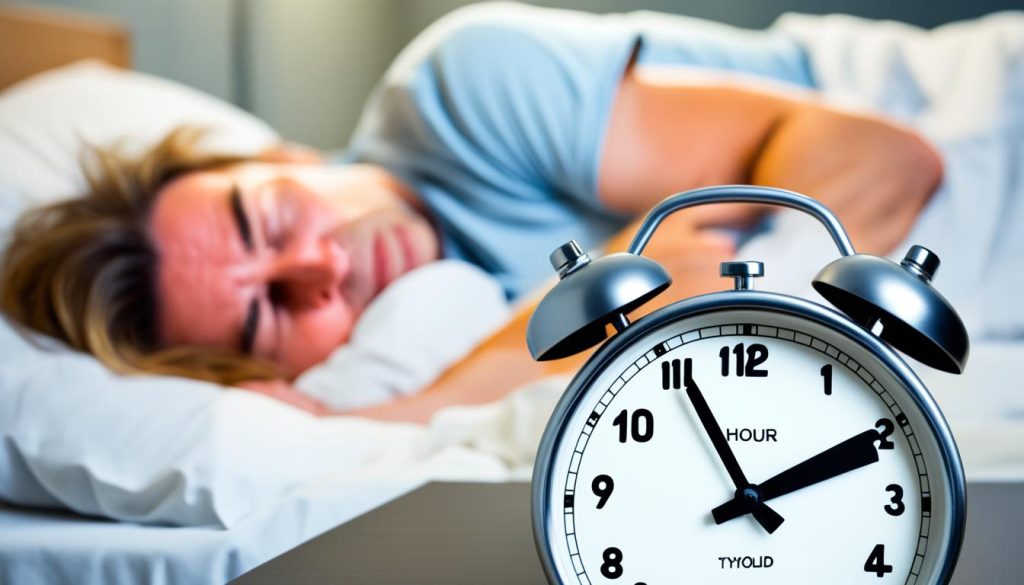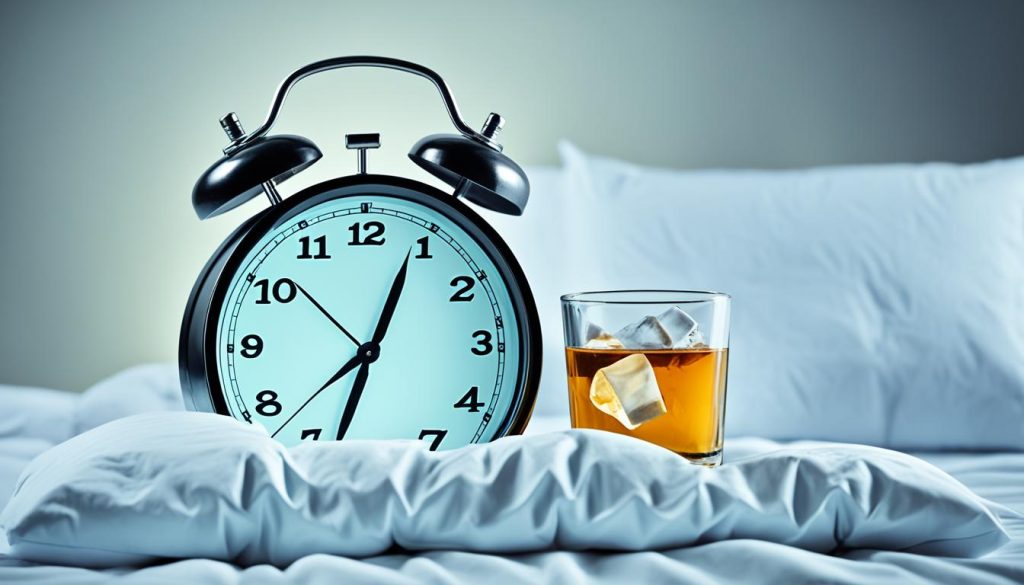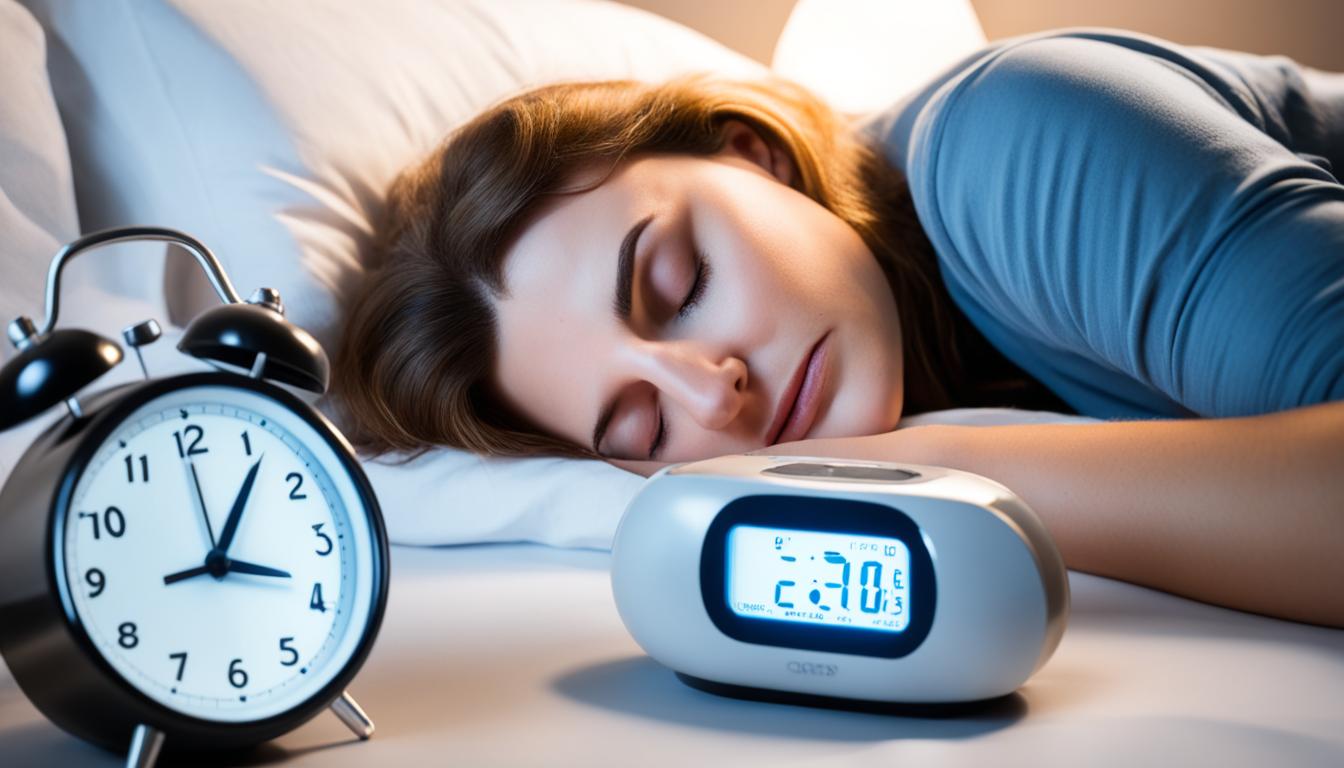Many people believe that getting enough sleep is the key to feeling well-rested. However, even when you’ve had a full night’s sleep, you may still feel tired. The quality of sleep is just as important as the quantity. There are several reasons why you may wake up tired despite getting 8 hours of sleep, including sleep disorders, thyroid problems, environmental factors, diet and alcohol consumption, mental health conditions, and anemia. It’s essential to understand the connection between sleep quality and fatigue and find ways to improve your sleep.
So, why do you feel tired after a full night’s sleep? Let’s dive deeper into each potential factor that could be contributing to your fatigue.
Section 2 will explore the impact of sleep disorders on your energy levels and overall well-being.
Why Am I Still Tired After 8 Hours of Sleep?
Sleep disorders can significantly impact your sleep quality and lead to daytime fatigue. Sleep apnea is one such disorder that causes temporary interruptions in breathing during sleep. These interruptions can occur multiple times throughout the night, leading to fragmented sleep and resulting in feelings of exhaustion during the day. Another sleep disorder that can contribute to tiredness is restless legs syndrome (RLS). People with RLS experience discomfort and a strong urge to move their legs, often leading to restless sleep and diminished energy levels when awake.
Insomnia, on the other hand, involves difficulty falling asleep or staying asleep, which can result in insufficient rest and tiredness during the day. Similarly, narcolepsy is a neurological disorder characterized by excessive daytime sleepiness, often causing individuals to fall asleep unexpectedly throughout the day. Hypersomnia is another sleep disorder characterized by excessive daytime sleepiness, but it differs from narcolepsy as it does not typically involve sudden sleep attacks.
These sleep disorders can have a significant impact on daily functioning and quality of life. If you suspect that you may be experiencing any of these sleep disorders, it is essential to consult with a healthcare professional for a proper diagnosis and treatment plan.

| Sleep Disorder | Symptoms |
|---|---|
| Sleep Apnea | – Loud snoring – Gasping or choking during sleep – Excessive daytime sleepiness – Morning headaches |
| Restless Legs Syndrome (RLS) | – Uncomfortable sensations in the legs – Irresistible urge to move the legs – Worsening symptoms at rest or during the evening |
| Insomnia | – Trouble falling asleep – Difficulty staying asleep – Waking up too early – Feeling tired upon waking |
| Narcolepsy | – Excessive daytime sleepiness – Sudden sleep attacks – Cataplexy (sudden loss of muscle tone) – Sleep paralysis – Hallucinations |
| Hypersomnia | – Excessive daytime sleepiness – Prolonged nighttime sleep – Difficulty waking up – Feeling groggy and disoriented |
Thyroid Problems and Fatigue
An underactive thyroid, also known as hypothyroidism, can contribute to daytime fatigue. When the thyroid gland fails to produce enough thyroid hormone, it slows down the metabolism, resulting in constant fatigue throughout the day. Tiredness during the day is a common symptom of an underactive thyroid. If you suspect that you have a thyroid problem, it is crucial to consult with a healthcare provider to get the necessary treatment.
Thyroid problems can have a significant impact on your energy levels and overall well-being. A blood test can determine if your thyroid is functioning properly.
The Role of the Thyroid
The thyroid is a small, butterfly-shaped gland located in the front of your neck. It plays a vital role in regulating various bodily functions, including metabolism. Thyroid hormones help control the body’s energy levels by affecting the metabolism of cells, tissues, and organs.
When your thyroid is underactive, it doesn’t produce enough hormones to keep your metabolism running optimally. As a result, you may experience constant fatigue, weight gain, difficulty concentrating, and a general feeling of sluggishness.
Treatment for Underactive Thyroid
Treatment for an underactive thyroid involves replacing the deficient thyroid hormone through medication. The most common medication prescribed for hypothyroidism is levothyroxine, a synthetic thyroid hormone. Taking this medication can help restore hormone levels and alleviate fatigue.

If you have been diagnosed with an underactive thyroid, it is essential to follow your healthcare provider’s instructions for taking your medication and attending regular check-ups. With proper treatment, you can manage your thyroid condition and improve your energy levels.
| Signs of Underactive Thyroid | Signs of Improved Thyroid Function |
|---|---|
|
|
Improving your thyroid function can have a significant impact on reducing fatigue and improving your overall well-being. Alongside medication, maintaining a healthy lifestyle and managing stress can also support thyroid function. Eating a balanced diet, engaging in regular physical activity, and getting enough sleep are essential for overall health and energy levels.
Environmental Factors and Fatigue
Your sleep environment plays a crucial role in determining the quality of your sleep. Various environmental factors can disrupt your sleep and contribute to morning tiredness. Let’s explore some of these factors and how you can create a comfortable sleep environment conducive to quality rest.
Sleep Disturbances
Sleep disturbances, such as loud noises from car alarms or other sources, can disrupt your sleep cycle and impair sleep quality. Wake up in the middle of the night can leave you feeling tired and groggy in the morning. Creating a quiet environment that minimizes external noise sources can help promote a more restful sleep.
Room Temperature
The temperature of your sleep environment can significantly impact your sleep quality. Extreme temperatures, whether too hot or too cold, can make it difficult to fall asleep or maintain a deep sleep. It is generally recommended to keep your bedroom cool, ideally between 60-67°F (15-19°C), to optimize sleep comfort and promote better rest.
Comfort
Creating a comfortable sleep environment involves ensuring that your bed, pillows, and bedding provide adequate support and comfort. An uncomfortable mattress or pillows can lead to tossing and turning throughout the night, disrupting your sleep. It’s important to invest in high-quality bedding materials that suit your personal preferences for comfort.
Optimizing Your Sleep Environment
Here are some tips to optimize your sleep environment and minimize environmental factors that may interfere with your sleep:
- Use earplugs or a white noise machine to drown out external noises.
- Install blackout curtains or use an eye mask to create a dark sleep environment.
- Ensure your bedroom is well-ventilated and has good airflow.
- Use a fan or air conditioning to maintain a cool temperature.
- Choose comfortable and breathable bedding materials.
By implementing these measures, you can create a sleep environment that promotes relaxation and enhances the quality of your sleep, reducing the chances of morning tiredness and fatigue.
Comparing Environmental Factors and Their Impact on Sleep
| Environmental Factors | Impact on Sleep Quality |
|---|---|
| Noise disturbances | Interrupts sleep, leads to poor sleep quality |
| Extreme room temperature | Disrupts sleep, makes it difficult to fall asleep or stay asleep |
| Uncomfortable bedding | Causes discomfort and disturbs sleep |
Creating a soothing and comfortable sleep environment is essential for quality sleep. Minimizing sleep disturbances, maintaining a suitable room temperature, and ensuring comfort can contribute to better sleep quality and reduced fatigue.

Diet and Alcohol Consumption
Your diet and alcohol consumption can have a significant impact on the quality of your sleep. Making wise choices in your diet and being mindful of alcohol intake can help promote better sleep and prevent sleep-related issues such as poor sleep quality, sleep fragmentation, and feeling unrefreshed in the morning.
Effects of Eating Before Bed
Eating a heavy meal close to bedtime can lead to discomfort and disrupt your sleep. This is because the process of digestion requires energy and can interfere with your body’s ability to relax and fall asleep. If you find yourself feeling uncomfortably full at night or experiencing indigestion, try to avoid heavy meals at least a few hours before bed.
Alcohol and Sleep Quality
While alcohol may help you fall asleep faster, it can negatively impact the quality of your sleep. Alcohol can disrupt your sleep stages and lead to fragmented sleep. It can also interfere with the rapid eye movement (REM) sleep stage, which is crucial for cognitive function and feeling rested in the morning. Consuming alcohol within four hours of sleep can result in feeling groggy and unrefreshed the next day.
It’s important to note that alcohol acts as a diuretic, causing increased urination during the night. This can disrupt sleep and result in frequent awakenings, further contributing to poor sleep quality and daytime fatigue.

Proper sleep hygiene recommends avoiding alcohol consumption close to bedtime for a better night’s sleep and improved overall well-being.
Mental Health Conditions and Fatigue
Mental health conditions such as stress, anxiety, depression, and mood disorders can greatly impact your well-being and contribute to feelings of tiredness during the day. These conditions can disrupt your sleep patterns and quality, leading to daytime fatigue even when you’ve had enough hours of sleep. It’s crucial to recognize the connection between your mental health and fatigue and seek support from a healthcare provider.
The Impact of Mental Health Conditions on Sleep
Stress, anxiety, depression, and mood disorders can all affect your ability to achieve restful sleep. People experiencing high levels of stress or anxiety may find it difficult to calm their minds and relax enough for sleep. Depression can lead to disruptions in sleep patterns, such as insomnia or excessive sleepiness, interfering with the quality of sleep. Mood disorders, such as bipolar disorder, can also impact sleep by causing sleep disturbances or irregular sleep-wake cycles.
Managing Mental Health and Fatigue
If you suspect that your mental health is contributing to your feelings of tiredness during the day, it’s essential to seek professional help. A healthcare provider, such as a therapist or psychiatrist, can provide a comprehensive assessment and develop a personalized treatment plan. This plan may include therapy, medication, lifestyle changes, or a combination of approaches to address your mental health and improve your sleep quality.
Self-Care Strategies
In addition to seeking professional help, you can incorporate self-care strategies into your daily routine to support your mental health and combat fatigue:
- Practice stress-reduction techniques, such as deep breathing, meditation, or yoga.
- Engage in regular physical exercise, which can positively affect your mood and sleep quality.
- Create a calming bedtime routine, including activities like reading, taking a warm bath, or listening to soothing music.
- Avoid excessive consumption of caffeine, especially in the afternoon and evening.
- Prioritize self-care activities that promote relaxation and stress relief, such as spending time in nature or engaging in hobbies that bring you joy.
The Importance of Professional Support
Remember, you don’t have to face mental health conditions and fatigue alone. Seeking professional help is essential for effective management and recovery. If left unaddressed, these conditions can significantly impact your overall well-being and quality of life. A healthcare provider can guide you through the necessary steps to improve your mental health, enhance your sleep quality, and regain your energy levels.
Anemia and Fatigue
Anemia is a common condition characterized by a deficiency in red blood cells or hemoglobin, which can result in constant exhaustion. Even if you get a full night’s sleep, an iron deficiency associated with anemia can lead to low energy levels and a persistent feeling of tiredness.
Additional symptoms of anemia include:
- Shortness of breath
- Chest pain
- Pale skin
- Dizziness
- A pounding sound in your ear
If you experience these symptoms or suspect you may have anemia, it’s essential to consult with a healthcare provider for a proper diagnosis and treatment plan. They can conduct the necessary blood tests to determine if you have anemia and identify the underlying cause.
Remember, anemia can have various underlying causes, such as iron deficiency, vitamin deficiencies, chronic diseases, or certain medications. Proper diagnosis and treatment are crucial to address the specific cause of anemia and alleviate fatigue.
Conclusion
Improving sleep quality is crucial for overcoming fatigue, even after getting sufficient sleep. To enhance your sleep quality, prioritize good sleep hygiene practices. This includes avoiding screens before bed to reduce exposure to blue light, which can disrupt your sleep cycle. Creating a sleep-friendly environment with a cool and dark room can also contribute to better sleep.
Engaging in regular physical activity can help regulate your sleep schedule and promote more restful sleep. Additionally, reducing caffeine and alcohol intake before bedtime can prevent sleep disturbances and improve overall sleep quality. These lifestyle changes can have a significant impact on your sleep quality and help combat fatigue.
If you continue to experience extreme fatigue despite implementing these strategies, it’s crucial to seek professional help. A healthcare provider can evaluate your sleep patterns, identify any underlying sleep disorders, and provide appropriate treatment. Remember, everyone’s sleep needs may vary, so finding the right balance of sleep duration and quality is key to achieving optimal rest and energy levels.




